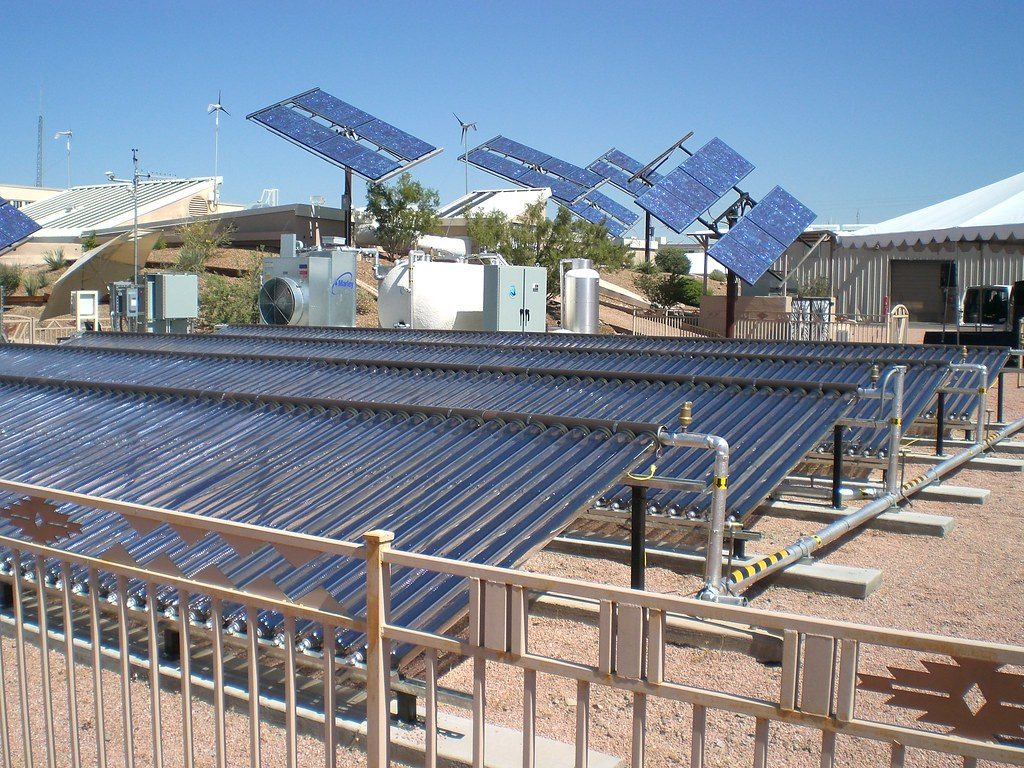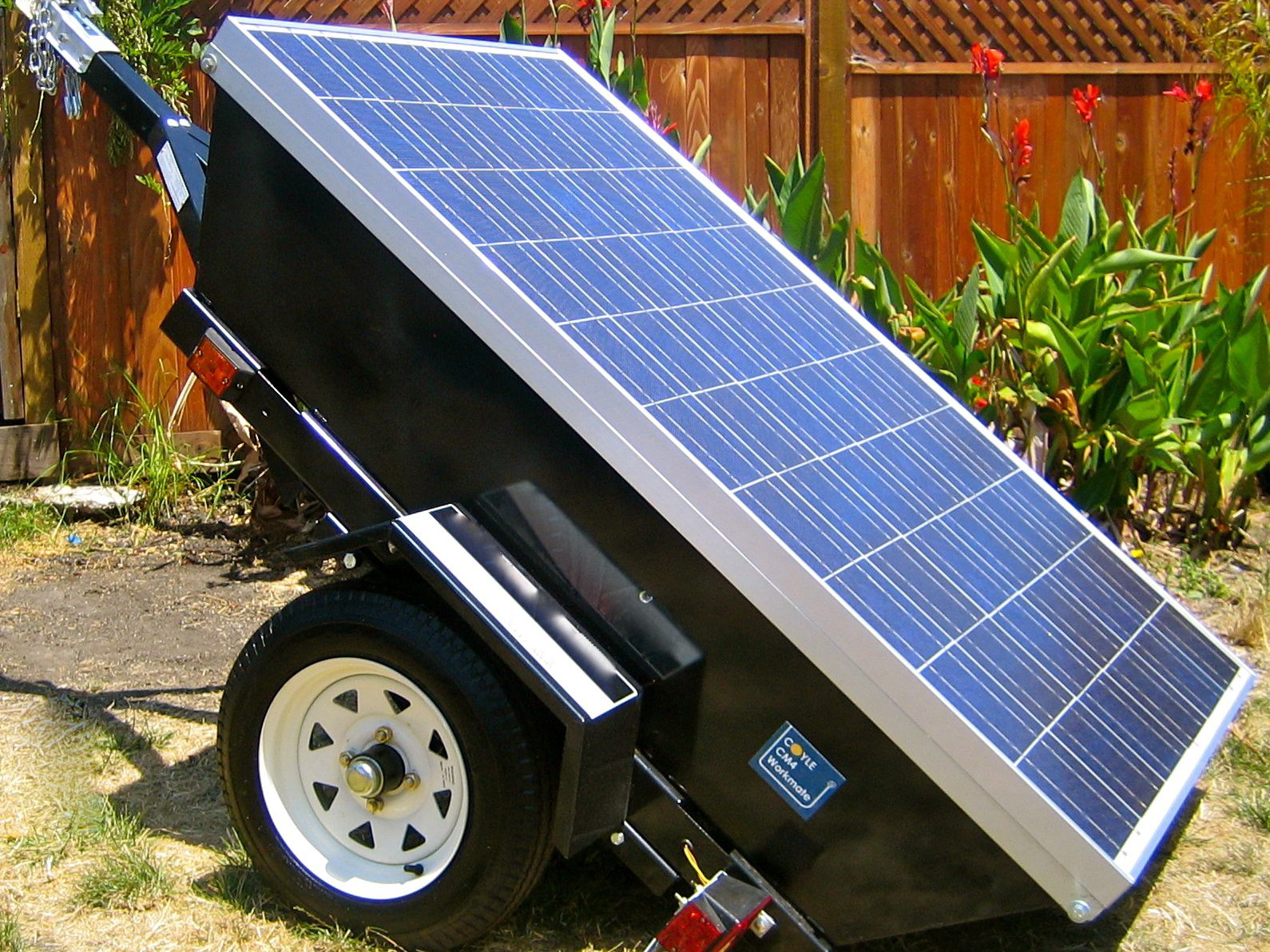
Solar air conditioning systems are based on closed cooling circuits (also known as gas), which is pressurised by a condenser compressor. With solar air conditions, an external heat source in the form of a solar panel (or flat collector) can now be used to absorb the ambient temperature and use this heat in the coolant. It induces pressure in a closed coolant loop to run the alternating solar current. The more open the solar panels (the cooler), the less time it takes to run the air-conditioning process.
Hybrid Systems
Such systems combine PV with Direct Current (DC) and implies that instantly, depending on circumstances, the device can switch between photovoltaic and solar energy. When the unit is in hybrid mode the batteries are powered by solar panels, as long as the sun is up. When the AC cycle is no longer in hybrid mode, it draws power from the battery backup and concurrently charges the batteries through normal alternation of current.
Solar-Powered Evaporative Coolers
Often known as an absorption chiller, these machines are used to heat and cool the water they create by evaporation and condensation. The evaporative cooler ventilator and the motor are powered by solar power, which blows air into water-saturated material. These solar-powered evaporative refrigerators can operate without electricity for many hours.
What You Need To Know Before Switching To Solar Air Conditioners
If you’re really thinking about going green and upgrading to a solar air conditioner to replace your traditional air conditioner, there are a few things to keep in mind.
While solar-powered evaporative coolers reduce energy usage in your house, this system certainly raises water consumption because these systems need to be attached to a water pipe.
It makes the cooler alternative a little less environmentally friendly relative to hybrid AC solar systems that work with the mix of battery power and solar panel electricity.
In reality, converting to a solar-powered air conditioner costs you and is (at least initially) not inexpensive, no matter which device you pick. Solar panels need to be mounted (unless you no longer have them) because, like solar air conditioners, they typically cost thousands of dollars, while some traditional medium-sized air conditioners are ten times cheaper on the market.
However, there is always a long-term positive side of greening, which protects the world and the atmosphere while earning a penny or two in the long run.







